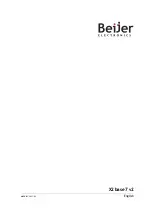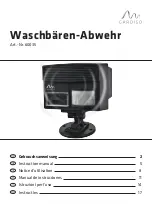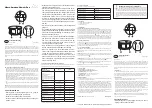
Chemical Resistance
5
Chemical Resistance
5.1 Touch Screen and Overlay Material
5.1.1
Protective Film
Solvent Resistance
The protective film withstands exposure of more than 24 hours duration under
DIN 42 115 Part 2 to the following chemicals without visible change:
Acetonitrile
Diesel
Petroleum spirit
(1)
Ajax / Vim in solution
Downy / Lenor
(1)
Phosphoric acid (<30%)
Alkalicarbonate
solution
(1)
Ethanol
Potassium ferricyanide
Ammonia (<40%)
(1)
Glycerine
Potassium hydroxide (<30%)
Acetic acid (<50%)
Glycol
Pure Turpentine
Ariel powder in
solution
(1)
Gumption
(1)
SBP 60/95
(1)
Bleach
(1)
Hydrochloric acid (<36%)
Sulfuric acid (<10%)
Castor oil
Linseed oil
Tomato ketchup
Caustic soda (<40%)
(1)
Methanol
Trichloroacetic acid (<50%)
Cutting oil
Nitric acid (<10%)
White Spirit
Cyclohexanol
Paraffin oil
Windex
(1)
Diacetone alcohol
Persil powder in solution
(1)
Wisk
(1)
Extremely faint glossing of the texture was noted.
The Autoflex protective film withstands DIN 42 115 Part 2 exposure of up to 1
hour duration to glacial acetic acid without visible change.
The Autoflex protective film is not resistant to high pressure steam at over 100
°C or the following chemicals:
Concentrated mineral acids
Benzyl alcohol
Concentrated caustic solution
Methylene chloride
Beijer Electronics, MAEN329
13














































